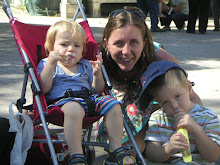Lake Kagavero
Yesterday I went to Lake Kagavero. It was my fourth visit. Kagavero is a scenic little lake, home to a nesting pair of Fish Eagles and many other water birds, and a stopping off point for many more - or so I hope - during migration, as well as visiting hippos and assorted small wildlife. I'm intending to set up a picnic spot cum bush campsite on a rise overlooking the lake, and a bird hide down on the lake shore. The community are on-side, as long as I organise a blessing involving large amounts of goat meat and rice. The picnic site is great: funky overhanging vegetation and a lovely view, and the birdhide should be easy enough, although we may have to consider building it on stilts (a first for me) as the water level of the lake varies considerably between rainy and dry seasons. It's even strategically en-route to the Park's most sought-after destination, Ibo Island. But here's the catch. It's a mere 100km from Pemba to Kagavero, which should be a bonus, but at the moment it's a three-hour drive from hell, through massive holes, over vicious corregations and around unhelpfully placed boulders, all accompanied by vast quantities of red dust. Although I wasn't driving, my back is telling me all about it today. That's not a great selling point. Some days, my job seems more challenging than others.
Labels: birds, Ibo
A wee post
Today, for the first time, Sebastian went to nursery without a nappy on. Thanks to the close attention of his carer, he came home wearing the same pants and shorts as when he left. Cause for celebration indeed!
Labels: Sebastian
Chew on this
Six months ago, a 25kg bag of rice cost 280 mts.
Now it costs 600 mts (about ₤12.50).
600 mts represents about half many families’ average monthly income.
25kg of rice represents about a quarter of many families’ monthly consumption of staples.
Maize cost about 45 mts per10kg bucket last year at this time.
Maize now costs 75 mts per10kg bucket.
It is harvest time and prices should be coming down, but are instead going up.
Poor rains mean that most urban machambas have produced almost nothing this year, and in many rural areas heavy early rains and then an abrupt end to the rainy season means that first-sowing maize seedlings were washed away, whilst late-harvesting crops such as sorghum have also suffered and not matured.
The price of bread has increased twice this year, from 1,50 mts per roll to 2,50 mts per roll (about 5p).
Beans, onions, potatoes are all more expensive, fresh veg and fruit not so (but these are consumed principally by a wealthier minority).
Fuel prices have doubled over about 12 months, to around ₤1 per litre of petrol
The minimum wage is 1,700 mts, or approximately ₤35.
My neighbours are worried.Labels: food, Pemba life
Bible studies
One inescapable element of life in Pemba is that, as a white person, I am asked for money pretty much every day. Some of the petitioners are obvious beggars, most of whom I know, others apparently perfectly well-off random strangers. Many are the sob-stories they have poured in my ear, most of which I ignore, but the funniest approach so far was the man who acosted me the other day and asked for 10 mts (20p). When I turned him down, he replied (this is a loose translation) "Jesus said, those who feel shame will go hungry." Now I may not be fully up to speed on all of Jesus' pronouncements, but I'm prettty sure that that is a pretty unorthodox interpretation of his dictums. I blame the American missionaries.
PS: just in case I come across as a totally insensitive tight-fisted hag in this story, I would like to mention, for the record, that I do regularly dispense small amounts of cash to the beggars I know and who are genuinely needy. And just in case I come across as totally naive, I am aware that many of them spend it all on hard liquor, but probably so would I if my life was anything like theirs.
Labels: Pemba life


